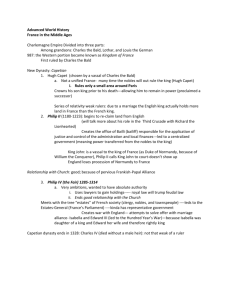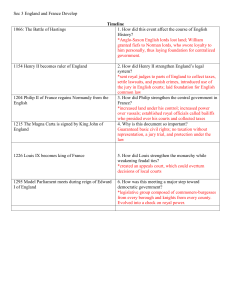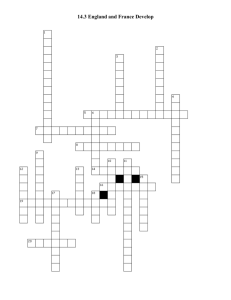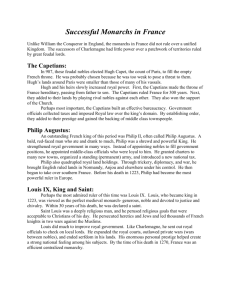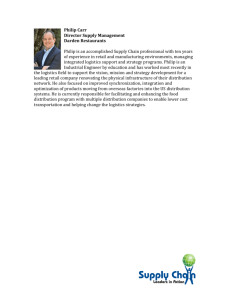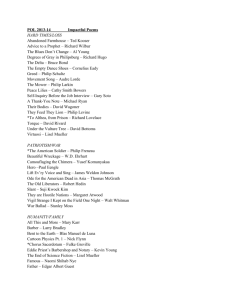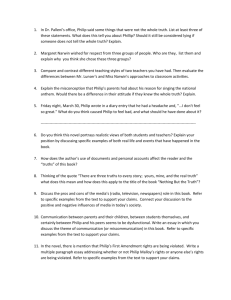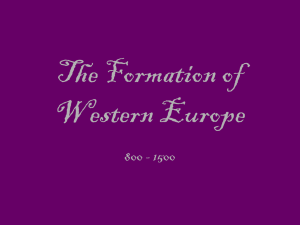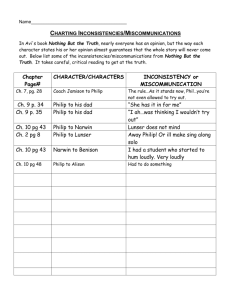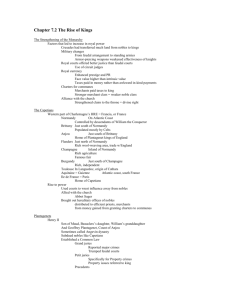World History Chapter 14C Power Point
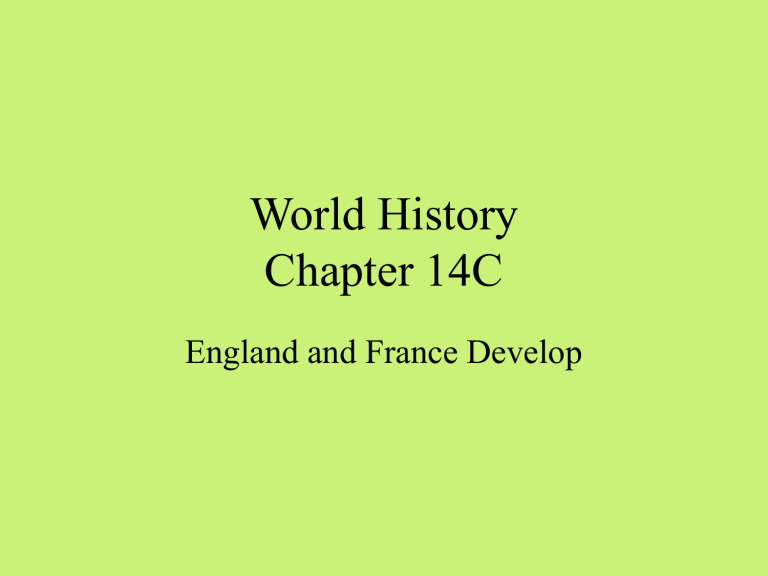
World History
Chapter 14C
England and France Develop
England
•
Alfred the Great (871-899) and his successors united England (Land of the Angles)
•
When Edward the Confessor died (1066) there was no direct heir to the throne
•
William the Conqueror of Normandy will invade England
•
William will defeat Harold Godwinson at the Battle of Hastings on October 14, 1066
Continued
•
William will declare all of England as his personal property
•
He will have the Doomsday Book made in order to catalogue all of his property and then will create fiefs for 200 Norman knights
•
Henry II will marry Eleanor of Aquitaine and will enlarge English holdings to include:
England, Normandy, and Aquitaine
Goals of English Kings
•
Hold and add on to their French lands
•
Strengthen their own power over the nobles and the Church
Henry II
Henry II and the Royal Courts
•
Royal judges were sent to every part of
England at least once a year
•
Courts collected taxes, settled lawsuits and punished crimes
•
Introduced the use of the jury in English courts
•
English court decisions formed a unified body of law that became known as common law
Continued
• Because of King John’s excessive taxation his subjects rebelled
•
On June 15, 1215 they forced him to sign the Magna Carta (Great Charter)
King John
Magna Carta
•
Nobles wanted to safeguard certain basic political rights
•
No taxation without representation
•
A jury trial
•
Protection of the law
Model Parliament
• Created due to Edward I’s excessive taxes
•
Model Parliament included nobles and commoners
France
Capetian Dynasty Rules France
•
By the year 1000, France was divided into about 30 feudal territories
•
In 987 Hugh Capet succeeded Louis the
Sluggard
•
The Capetian Dynasty of French Kings ruled
France from 987-1328
•
Hugh and his son were weak rulers but had the advantage of time and geography on their side
•
Their power spread outward from Paris
Hugh Capet
Continued
• lands came at the expense of King John of
England
• By the end of Philip’s reign, he had tripled the lands under his direct control
•
For the first time, a French King became more powerful than his vassals Philip II (Philip
Augustus) was one of the most powerful of the
Capetian Kings
• His success in increasing France’s
Philip II (Philip Augustus)
Building a Strong Central Government
•
Establish royal officials called bailiffs
• Bailiffs presided over the King’s court and collected the king’s taxes
Louis IX
•
Known as the ideal king
•
Made a saint after his death
•
Created a French appeals court
•
Appeals Courts strengthened the monarchy while weakening feudal ties
Louis IX
Philip IV
•
Adds the Third Estate to the Estates
General (Church leaders were known as the
First Estate, Nobles were the Second Estate, and Commoners were the Third Estate)
•
Estates General increased royal power against the nobility
•
Estates General never became an independent force that limited the king’s power
Philip IV
TA14D
Read Pages 398-403
Copy & Define Terms on Page 403
Copy & Answer Questions 16, 17, & 18 on page
404
